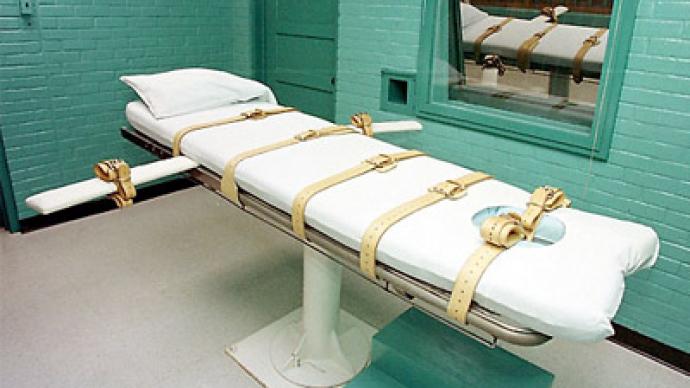America’s bloodlust leads to financial woes

Could America’s bloodlust be leading us to bankruptcy? The US is one of the last Western democracies which still practices the death penalty, and the policy is coming at a very high financial cost.
But is housing and then executing the worst criminals really worth it? Convicted killer Jonathan Fajardo is one of the latest additions to California’s death row. For the family of Fajardo’s victim, his death sentence gives them a sense of justice.“We can finally move forward and Fajardo got what he deserved,” says Marlene Townes, the grandmother of Cheryl Green, who was killed by Fajardo.But there is a high price for society’s desire for retribution:$300 million per executed prisoner.Since 1978, 13 inmates have been put to death and some $4 billion have been spent on California’s death row according to a newly released study. With more than 700 inmates still waiting to be executed, that cost is expected to jump to $9 billion by 2030.Throughout the years, voters have consistently shown their approval for the death penalty. Now the argument over whether to keep pouring money and people into death row comes at a time when California is facing a major budget shortfall of $25 billion.Leading many to argue the death penalty is a luxury the cash strapped state can no longer afford.“There are so many different things you can put that budget towards instead of killing people,“ says Derrell Crawford, a South Los Angeles resident.“You can put that budget for programs to improve our streets, for the youth, housing programs for the homeless,” Crawford adds.Though in one of Riverside’s middle class neighborhoods, school construction is complete but there is no money to operate it so it remains empty.“It costs more to keep someone in prison in the state of California than it does to send a student to a private school like USC,” says teacher Ron Gochez.“What it says is that our state is more than willing to spend money to imprison our communities,” Gochez adds.A short sighted policy according to Gochez, who as a community organizer sees the human costs of the economic crisis up close.“If you have a higher unemployment rate, spend more money on incarceration and at the same time spending less money on education, that’s a perfect recipe for disaster,” says Gochez.While capital punishment is meant to deter the most heinous of crimes, in one of Los Angeles' poorest and most crime ridden neighborhoods, the debate is still not settled over whether it’s even working. Nevertheless a bill to abolish the death penalty has been introduced in the state legislature.While the issue remains a moral one for many, the final verdict may be one based on overwhelming financial evidence.“What’s happening in California is the same that’s happening in Greece,” says Collapse Network CEO Michael Ruppert. With the state in financial disarray, Ruppert says it is only a matter of time before they open up the gates to jails on the west coast and let the prisoners on the street for the sake of the state’s economy. With Jerry Brown back in office nearly 30 years after he walked away from two terms as governor, Ruppert says that he might be the state’s only hope.“Jerry Brown might be the guy in California to remove the death penalty here which I would be in favor of,” says Ruppert.











